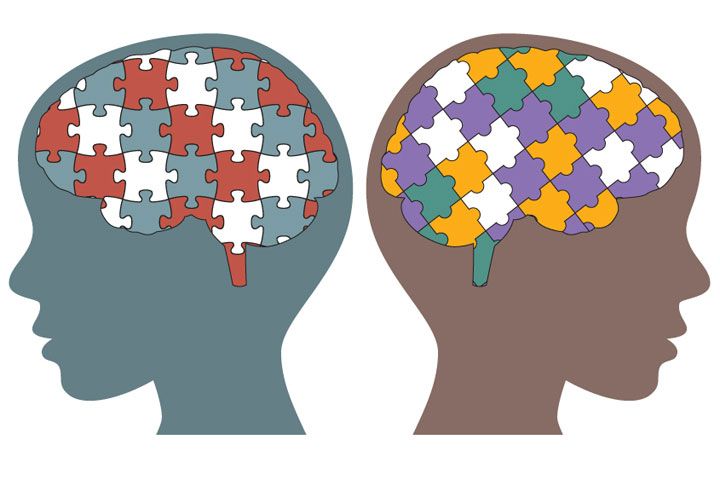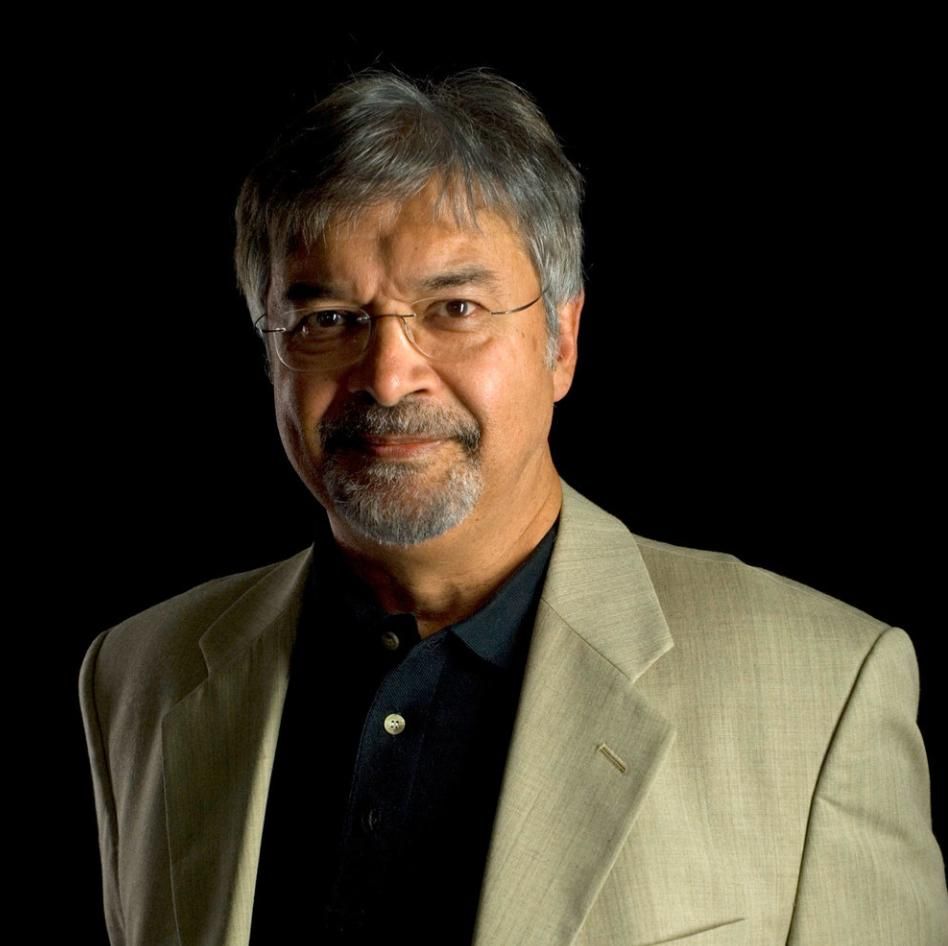Autism and Chess - Part 2
Our last article on this subject was well-received. A number of autism experts and groups have shown great interest in the experiences Simon has made with chess – which might be the ideal entry point for people with ASD to interact with others. In the second part Simon describes how playing in tournaments was a big step for him – how it helped him to make and enjoy new contacts. | Illustration by Bobby Lopez
Autism and Chess (1): ASD stands for Autism Spectrum Disorder, a complex developmental condition that leads to challenges in social interaction, speech and nonverbal communication, and restricted or repetitive behaviors. People with autism or Asperger's often have special interests to which they apply themselves with great dedication. One such interest can be chess, and that provides opportunity and benefits – as described from personal experience by a young man with ASD.

Autism and Chess (2)
By Simon
Currently I am a real tournament player, taking part in many – mostly 10-15 – tournaments a year. This number includes all forms: blitz, rapid chess and correspondence. I feel very much at home in the "chess world", because on the one hand I can pursue my passion, and on the other I am among "like-minded” people, which makes me feel very positive and happy. This was not always the case...
My first tournaments were anything but pleasant. I still remember how there were too many things that disturbed and unsettled me. So it's not surprising that my tournament experiences, which I had at the age of 13, were mainly negative for me. There were simply too many people, strangers, too much noise, a new environments, new personalities, different conditions, different rooms, different lighting conditions. All of this was far too much chaos for me! From an evolutionary point of view, man is a creature of habit, and Aspergers are even more so. By this I mean that in the majority of all cases we find it difficult to get used to new things – to step out of our comfort zone.
In order to understand this even better, I would like to use a metaphor: imagine that you are on a ship and suddenly you steer into a very dense fog. Everything that lies beyond the fog you can only guess at, if at all. It is completely uncertain what will ultimately await you there. It may well be that the feeling of "uncertainty" will get to you, and you may even feel fear of the great "unknown.” This is also true for us Aspergers. Everything that we cannot foresee is per se bad or negative for us. It would be best if we knew everything down to the smallest detail. Understandably, this is often not possible, and that can really get us into trouble.
So we do not have a good feeling about getting involved in the "uncertain." Applied to chess, and especially to tournament situations, this means that I had to get used to the fact that my otherwise so well thought-out and structured life would be thrown to the winds from now on. The world of chess was totally new territory for me. In the beginning it was very difficult for me to submit to it and integrate into a group.
Nowadays I really enjoy every tournament I can play, and the factors that disturbed me in the beginning are no longer so severe. And yet, there are always situations in which it become clear that I am an Asperger's. If too many stimuli (light, noise through doors, people, coughing of opponents, strange arrangement of the pieces, non-aesthetic presentation of the boards, unusual notation forms, etc.) affect me, and can lead to my attention span and concentration suffering. No matter how hard I try, there are always situations in which I cannot sort my thoughts correctly – too many factors/circumstances disturb me, so that I cannot perform at my full capacity. However, the past has taught me to acquire strategies that do not work perfectly, but are just enough for me to focus on the essentials and hide most of the things that bother me.
I would like to take a little jump back. One of the biggest problems for me once was to hide everything not based on chess during a game. I also mentioned my other special interest: the natural sciences. Not far from that are quizzes, puzzles, etc. During the TV show "Who Wants to be a Millionaire" I often memorized every single question, together with the corresponding answers. This happened almost automatically, I don't really want it.
Now imagine how, during games, I may not be able to really concentrate on my chess (that's what it's all about!), because the quiz questions are buzzing around in my head. I just can't suppress them, and my concentration becomes very limited. This often manifested in my deviating from the right path, in physical discomfort, mental blocks and headaches. You can't play chess successfully like this, I was fully aware of that!
Fortunately I grew with the tasks the game set. Today I simply assume that you can't get rid of everything that has a negative influence, but you can learn to deal with it as well as possible. Here is another quote: "Study brings wisdom, but practice brings perfection.” This basically says everything. Because in my opinion, no matter which area of life you look at, you are always confronted with two directly intertwining areas, theory and practice. I weight the practical view of things a bit more highly, because in my opinion you have not won even half the battle if you know the theory but do not know how to convert the theoretical knowledge into the practical part. What good is it for me to know how to steer a car, purely theoretically, if I have never sat in one before, and if I am not at all familiar with the equipment and practical functioning?
Let me now come to my conclusions: I strongly assume that there are many "hidden autists" in chess. Furthermore I think that the neurotypical image of autistic people in public needs further clarification, and I would like to see us fully established as part of society. Unfortunately this is not yet the case, to a large extent. Autism tends to have negative connotations. You immediately think of people who are socially useless, who do not know how to organize their lives, and only enjoy their special areas of interest, which they follow with full dedication. The image is also of loners who are not at all interested in communicating with others, let alone joining a group and talking about things far from our own horizon of interest. Much of this is true, but the extent to which it affects us, is in my opinion not accurate.
In any case I can state for myself that in chess I have found my niche, one in which I feel more than comfortable. I can justifiably claim that many abilities, which are typical for Asperger’s and generally speaking, autism, are of benefit to me. But the negative sides are also more than obvious, and I have to work on them continuously in order to be able to make everything more bearable for myself.
I am extremely grateful that I have discovered chess, this wonderful, fascinating, logical sport, and I will probably remain faithful to it forever! The different people I got to know through chess are an enormous enrichment for me. In addition there are the many tournaments where I have been able to make so many contacts over the years – people with whom I could exchange ideas about all kinds of things. Furthermore every tournament somehow has its own charm, and I am always happy when I can attend these great events together with others and thus see myself as part of the "chess community". It is a really great feeling, not to mention the newfound ability to sit face-to-face with an opponent for a protracted period of time.
In general I recommend that everyone should occupy themselves with chess. It trains and improves important skills, strengths and competences, you learn to deal with pressure, concentration, perseverance, creative and abstract thinking, it trains your memory, optimizes your mathematical understanding and spatial imagination.
I would like to emphasize one more thing. When I started to play chess, I always saw everything from the point of view of chess. It was all embedded in the chess context. All the other things were of no interest, I had no feeling for them.
In the meantime I can fortunately say that I regard chess as more than an isolated activity in itself. I really appreciate the many friendly and interesting personalities I meet at tournaments, I love the competitive playing atmosphere, preparing together with other players for important games, spending nice evenings with them, the culinary experiences, exploring new cities and countries. I am very happy that I now no longer see chess as an isolated occupation, but can allow the other important aspects flow into it.
I hope, dear readers, that I have given you a small insight into the topic of autism and chess, and have been able to adequately convey the experience of an Asperger-autist. Many thanks for listening, and hoping to see you soon again!
About the Author

Editor-in-Chief emeritus of the ChessBase News page. Studied Philosophy and Linguistics at the University of Hamburg and Oxford, graduating with a thesis on speech act theory and moral language. He started a university career but switched to science journalism, producing documentaries for German TV. In 1986 he co-founded ChessBase.


